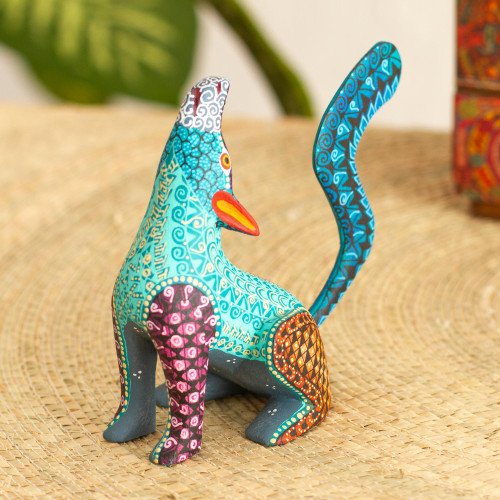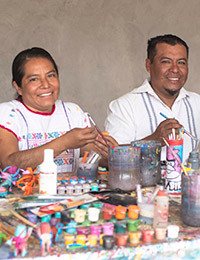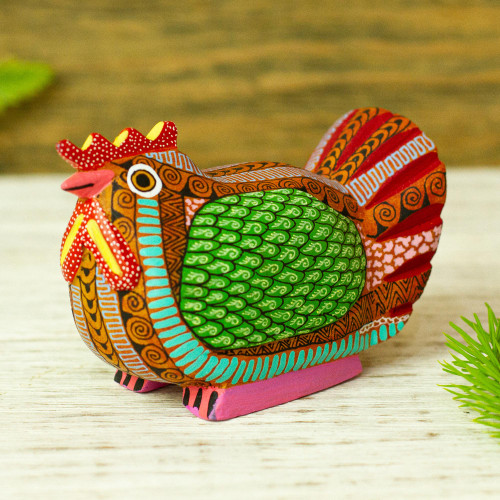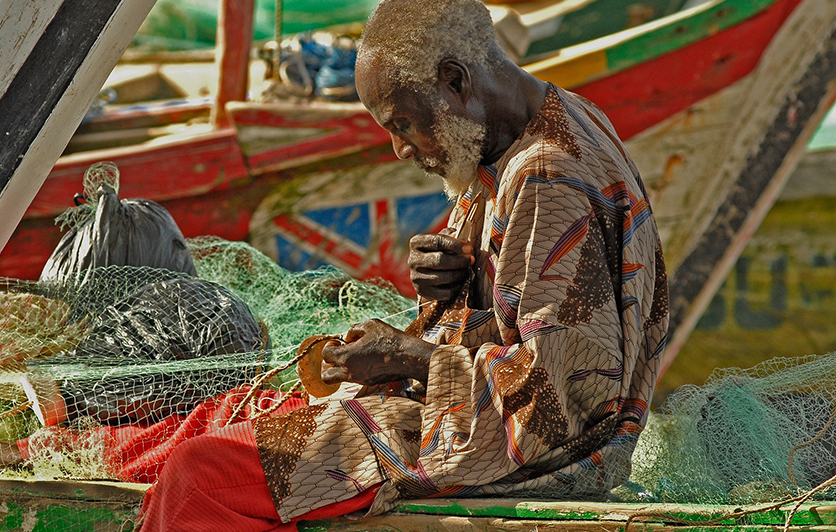Howling Coyote
Multicolored Alebrije Coyote Figurine with Geometric Motifs
$54.99
SKU: 324265
Jesus and Roxana Hernandez capture the classic silhouette of a coyote with its head bent back as it lets out a plaintive howl in this wonderful hand-decorated alebrije sculpture. Carved by hand from copal wood, the colorful figurine's body, including its tail, is covered with geometric motifs. Small parts are separated for shipping to protect from breakage.
The artisan pair hails from a Zapotec community in Oaxaca where most of the inhabitants are wood carvers. Jesus is thankful they are, '...able to offer work to our artisan neighbors. This is important in preserving our culture and tradition as well as generating a source of income.'
The alebrije tradition started with Mexico City papier mache artisan Pedro Linares (1906-1992). When he was 30, he fell into a coma due to serious illness. While he was unconscious, he dreamed he was caught between the land of the living and the dead; the place looked like a forest and was populated with creatures with body parts belonging to different animals. The beings repeatedly uttered the word alebrije. Upon recovering, Linares recreated these figures in bright colors using papier mache techniques and called them alebrijes. His work became famous and was one of the main influences of artisans in the state of Oaxaca who began crafting alebrijes of their own using traditional wood carving methods.
The artisan pair hails from a Zapotec community in Oaxaca where most of the inhabitants are wood carvers. Jesus is thankful they are, '...able to offer work to our artisan neighbors. This is important in preserving our culture and tradition as well as generating a source of income.'
The alebrije tradition started with Mexico City papier mache artisan Pedro Linares (1906-1992). When he was 30, he fell into a coma due to serious illness. While he was unconscious, he dreamed he was caught between the land of the living and the dead; the place looked like a forest and was populated with creatures with body parts belonging to different animals. The beings repeatedly uttered the word alebrije. Upon recovering, Linares recreated these figures in bright colors using papier mache techniques and called them alebrijes. His work became famous and was one of the main influences of artisans in the state of Oaxaca who began crafting alebrijes of their own using traditional wood carving methods.
- Copal wood
- 1 oz
- 3.9 inches H x 1.7 inches W x 4.9 inches D
- Made in Mexico















